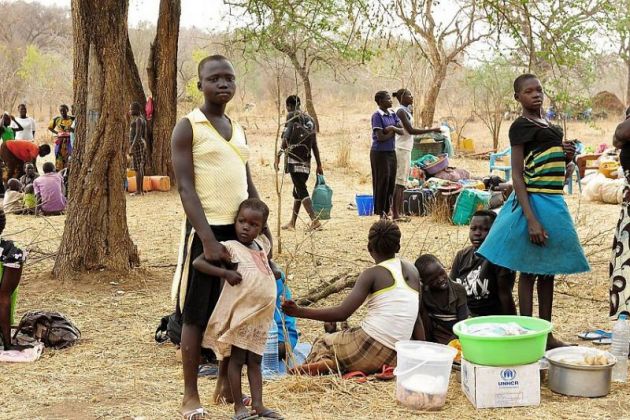More than one million refugees in Uganda need support, says Lutheran World Federation

The world's eyes have swung from Syrian refugees to the Rohingyas in Bangladesh from Myanmar in recent weeks, but the Lutheran World Federation says Uganda needs help as it is hosting more than one million refugees.
The East African nation of Uganda, much of which is bordered by Lake Victoria, Africa's biggest mass of water, is hosting most the refugees in Africa, and is continuing to take in most of them.
The number of South Sudanese refugees in the country recently surpassed one million. 85 percent are women and children, the LWF said on Sept. 15 and it says Africa's largest refugee crisis needs more support.
Lutheran World Federation staff working in Uganda have for more than 12 months, been receiving refugees from South Sudan.
It says that as the fighting continues to spread in South Sudan's East Equatoria province, thousands are forced out of their homes every day.
Men and boys have been kidnapped for forced conscription, he adds. Others talk about rape, abductions and attacks while fleeing to Uganda on foot.
Hearing testimonies like these has become regular for LWF staff working in Uganda.
TRIGGER-HAPPY MILITIA
"The militia shoot at anybody, we have lost mothers, fathers, siblings and children to their attacks," LWF quotes 35-year-old Watson Odaga, a South Sudanese refugee in Palabek settlement, Northern Uganda as saying.
Men and boys have been kidnapped for forced conscription, he adds. Others talk about rape, abductions and attacks while fleeing to Uganda on foot.
As the fighting continues to spread in South Sudan's East Equatoria province, thousands are forced out of their homes every day.
The United Nations refugee agency, UNHCR, reports an average arrival of 1,800 people a day during the last 12 months.
Uganda's President Yoweri Museveni, who has ruled since 1986, has a reputation for stifling opposition to him.
Yet, despite the challenges generated by the new influx from South Sudan, Uganda maintains one of the "most progressive policies to refugee protection," says LWF.
The government upholds an open-door-policy, and grants refugees freedom of movement, the right to seek employment and establish businesses, and access to public services such as education.
Refugees in Uganda do not live in camps but in settlements, and are allocated a plot of land to provide for their livelihoods. Because of that, Uganda is regarded as a model for many other refugee-hosting countries.
In a summit on the global refugee crisis, leaders of all 193 UN member states in September 2016 committed to the protection and integration of refugees.
The Ugandan Office of the Prime Minister, responsible for refugees in the country, adapted the Comprehensive Refugee Response Framework which was outlined on that summit to the Ugandan context.
Among others, OPM committed to maintain and support Uganda's progressive policy towards refugees, to protect asylum space, and to support the host communities.
LWF, one of the first organizations to respond to the emergency, is one of the organizations who help implementing that framework.
"We have hired 86 additional staff since January 2017 to assist the South Sudanese refugees. Over the course of the year LWF has provided aid to over 433,000 refugees in Northern Uganda," Paul Orikushaba, LWF Program Coordinator, said.